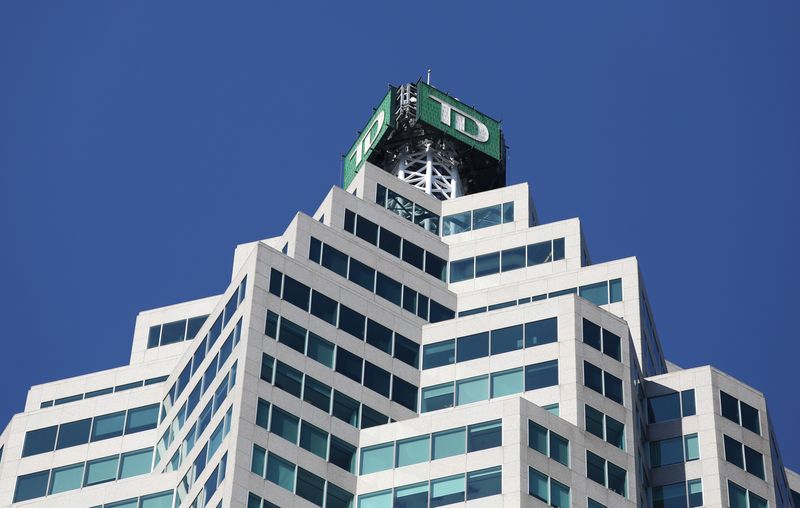By Nivedita Balu
TORONTO (Reuters) - TD Bank will focus on restructuring its balance sheet in the 2025 fiscal year, the bank said on Thursday, after it pleaded guilty to violating a U.S. law aimed at preventing money laundering, and agreed to pay a combined $3 billion in penalties.
The Canadian lender became the largest bank in U.S. history to plead guilty to violating the Bank Secrecy Act, government authorities said.
The lender, which had invested in its growth in the U.S. retail market, now must narrow its efforts to comply with a rare asset cap imposed by regulators. Its U.S. business has more than 1,100 branches and nearly 10 million customers, making it the 10th largest bank in the country.
The plea deal arises from multiple government investigations into what authorities described as pervasive issues.
BY THE NUMBERS
The Canadian lender will reduce U.S. assets by about 10%. It will sell as much as $50 billion of lower-yielding investment securities and reinvest the proceeds.
Those moves are expected to impact near-term net interest income, TD warned. It also warned of one-time costs as it slims down assets and repositions $1.5 billion of its investments.
TD has also set up a dedicated committee in the U.S. to oversee anti-money laundering efforts.
KEY QUOTES
"We think of 2025 as a transition year. We're going to use the year to be able to make the significant moves, to be able to create that asset capacity, to be able to comply with the asset cap," the head of its U.S. business Leo Salom told analysts on a conference call.
U.S. Attorney General Merrick Garland said the bank chose profits over compliance.
"This enforcement action is unusual because there are a number of specific crimes that are tied to the bank's laxity," said Ross Delston, an independent lawyer and former banking regulator who serves as an expert witness on anti-money laundering issues.
WHAT'S NEXT

Both the U.S. Department of Justice and the Treasury Department's Financial Crimes Enforcement Network will appoint a monitor to review, assess and oversee TD's efforts to fix the problems.
CEO Bharat Masrani will retire next year, handing over the reins to Ray Chun, current head of Canadian banking operations.